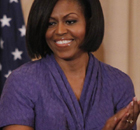Economy
Yuan value at issue in trade fight
By Xin Zhiming (China Daily)
Updated: 2010-03-13 08:03
 |
Large Medium Small |
Beijing - A top Chinese legislator criticised the US on Friday for its "ungrounded" demand for faster yuan revaluation and urged the US to rethink its trade policies, amid growing concerns about increasing trade frictions between the world's two major economies.
He Keng, vice chairman of the Financial and Economic Committee of the National People's Congress, criticized the US blaming China's exchange rate policy for its trade deficit. "I've told some US legislators that their deficit with China has been caused by their trade policies, not the yuan's exchange rate."
He said the real reason is that the US restricts exports of some products to China.
| ||||
"Yuan appreciation would not only harm the Chinese economy, but that of the world, as some renowned economists, such as Nobel Prize winner Robert Mundell, have concluded, " he warned.
Robert Ward, global forecasting director, Economist Intelligence Unit, said: "Any quick currency movement is obviously destabilizing, and obviously bad for companies that can not handle different exchange rates." Moreover, if the Chinese government makes a mistake in its yuan policy, "The exports growth would collapse, which is bad for everybody, including America," he said.
Zhou said US trade deficit with other countries stems from its declining industrial competitiveness. "The solution lies in its success in enhancing its competitive edge, not pressing others to appreciate their currencies," he said.
It is generally believed that the US is trying to find a scapegoat for its domestic economic woes as its unemployment rate remains high while the mid-term election is coming.
"Just looking at the deficit alone I don't think it's helpful," he said. "But it's very useful for politics because it's very big number, especially for the election year and clearly Mr. Obama's popularity is coming down."
Zhou, also a member of the Chinese People's Political Consultative Conference (CPPCC), the country's top advisory body, predicted that given the US economic predicament and mid-term election, it cannot be ruled out that the Barack Obama government may get tougher with China in exchange for support from the Congress for approving his reform plans, such as the healthcare reform.
The US could impose more trade remedy measures against Chinese products and the "Chinese economic threat" hype could arise this year, he said.
Zhang Haizhou and Lan Lan contributed to the story.











